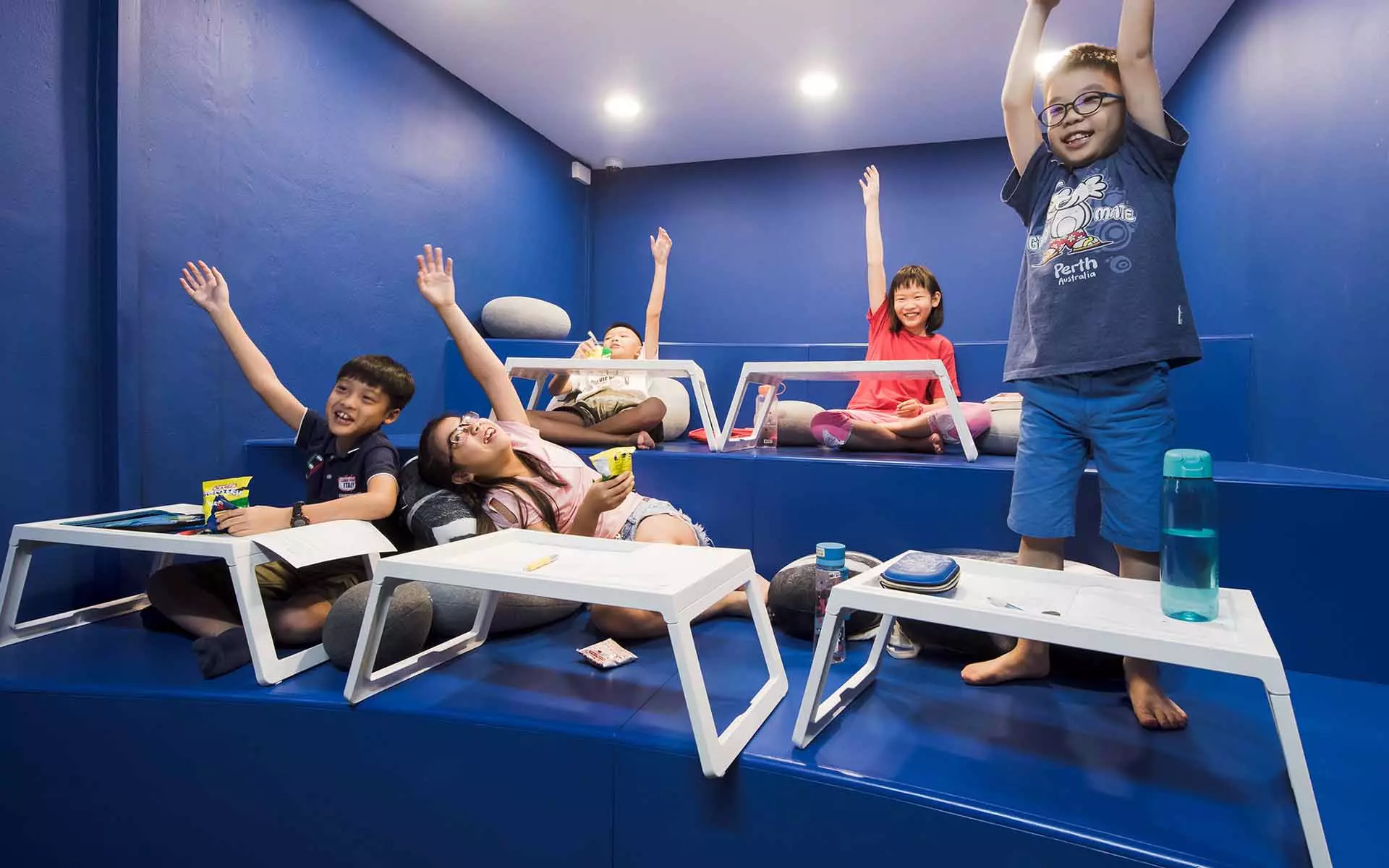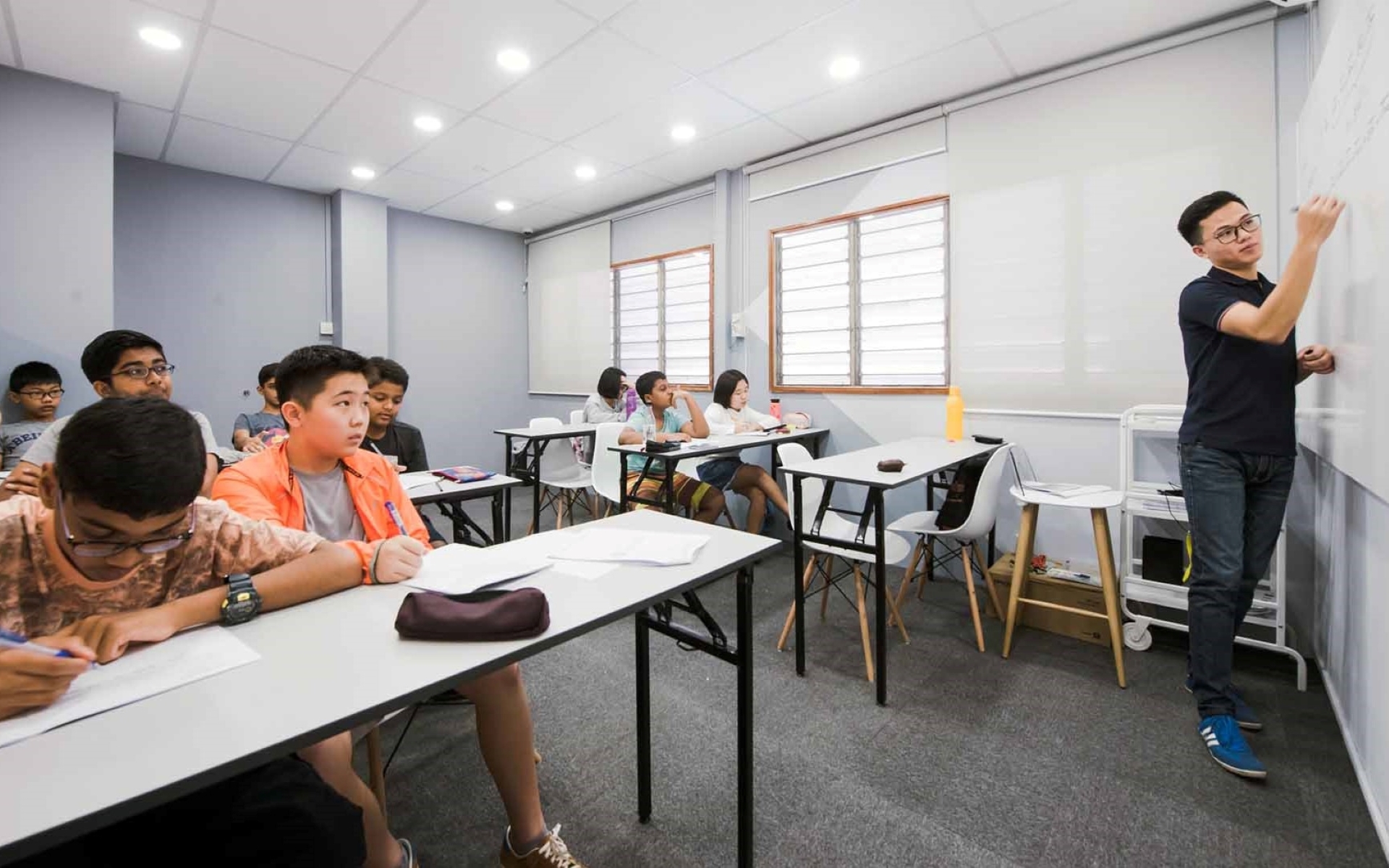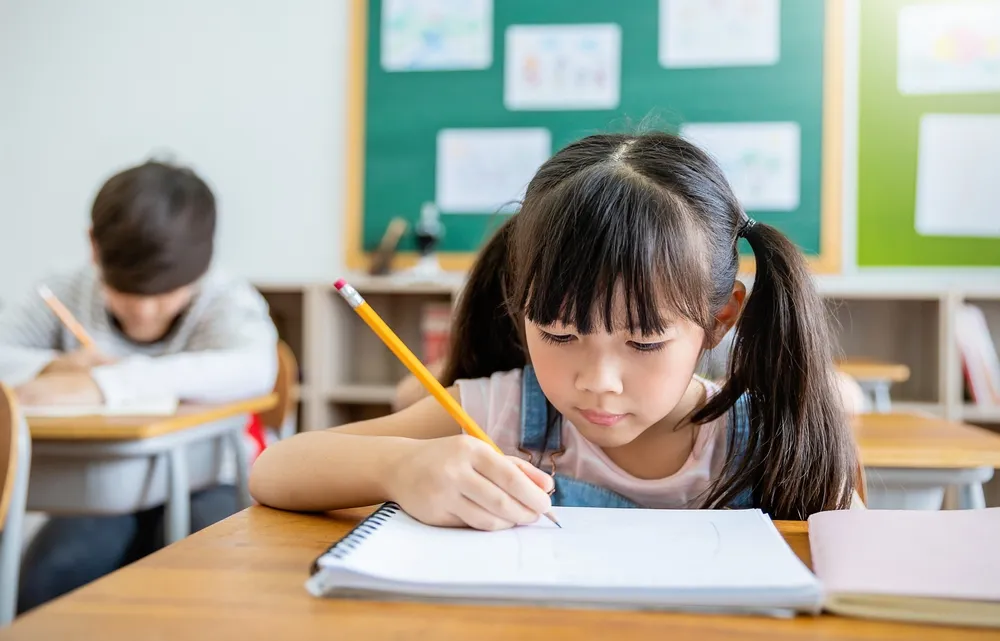With COVID-19 seen as endemic, it has changed how learning takes place - it is now a combination of online and physical classroom.
From setting up a conducive environment for HBL to maintaining continual assessment scores, many students have done well by adapting to the digitalisation of education with minimal impact on their yearly assessment. Online learning may not be ideal, but it enables teachers to have some real-time, individualised student instruction where possible. With online learning available, parents now have the flexibility of opting for online enrichment or tuition. This helps to keep their child's learning on track while saving time without the commute. Thus allowing many families the opportunity to use the HBL period to instill important life skills such as cooking as a family.
As school learning has moved to the digital space, parents remain concerned over the learning progress of their children. It has been reported that students' performance in maths has taken a hit more than any other subject. This is to be expected since maths concepts build upon one another.
With virtual instruction, this change in environment results in a longer lesson. Yet, some topics get left out; topics which otherwise would have been taught in a typical year school curriculum.
Another disadvantage of virtual learning is that a classroom on a computer screen does not always keep a student's attention. No matter what content is put on the computer, no matter how much fun it looks, the student may not grasp it or find themselves easily distracted. If they lose their focus and interest in learning, a teacher is not able to physically provide them with the help they need. Also, your child's study concentration and learning capacity may be affected by the transition between the school classroom to a classroom at home, and vice versa. At home, students may be lying on the sofa or bed, doing their work half-heartedly, or remain silent and disengage throughout the lesson. Whereas in a physical class, students are sitting in front of the teacher, and could be motivated to actively participate by raising their hands and doing supervised group work.
With the constant switch in environment and unseen distractions it may affect your child's momentum and interest in the subject. It is therefore critical to catch up and make up lost ground sooner rather than later, all while maintaining students' enthusiasm for the subject.
PARENTS' RESPONSE TO HBL
COVID-19 has changed parents' attitude towards supporting their children academically. However, many parents now share some common concerns during home-based-learning (HBL) periods:
-
Lower academic performance partly due to HBL
-
Students are unaccustomed to HBL and they may be perceive HBL as a unofficial holiday at home and not take virtual lessons seriously
-
Parents find it increasingly hard to reach school teachers for consultation
-
The need for "some pushing" for students to adopt HBL and to continue learning and excel
Adapting to a new norm of schooling; an online and self-directing form of learning, your child may need some "hand-holding" time to instill this as a new routine. The parents "hand-hold" the child to keep up with the pace of learning. This hand-holding period is an adjusting period for the child to accustom to the new studying norms with confidence.
Furthermore, your child's school teachers are likely being bombarded with consultations due to HBL, resulting in some delays in their reply. To avoid study anxiety and last minute examination panic, it is advisable to plan ahead and even explore the option of external help from maths tuition centres, such as Terry Chew Academy, to help your child to track on learning and continue the joy of learning.
HOW TCA CAN HELP
From advanced Maths Olympiad courses to challenging and intensive Maths bootcamps, TCA's professionally-trained teachers provide different levels of training for our students based on their interests and ambitions.
For examples, students who aspire to achieve AL1 (A*) or to improve their grade, TCA syllabus school maths is infused with Maths Olympiad types of questions to develop their critical thinking skills. More importantly, these out-of-box questions have already made their way into school examinations. Our Maths Olympiad programme is structured to engage our students' curiosity as well as developing their critical maths problem solving skills.
Math Olympiad types of questions test students' maths conceptual knowledge, encouraging the students to think about its connection and application to solve the cross-topic problems. With constant application of critical thinking skills, it would become second-nature for the student when tackling problem solving questions. Maths Olympiad questions require critical and inventive thinking skills. The ability to think out of the box and make connections confidently are the necessary skills required to strive well in a complex in school as well as in the workplace.
From past years' PSLE Maths papers, Maths Olympiad questions make up about 30% of the paper with cross-topic and unseen questions. There is no doubt that 'tough' PSLE Maths questions would continue to weigh heavily on parents' minds.
TCA's PSLE Maths programme has positively impacted on students by enabling them to gain a strong conceptual understanding of maths. Over time, students who are strong in critical thinking skills also tend to pick up concepts much faster than others and are able to solve questions quicker and more accurately.
TCA's Maths Olympiad programmes provide primary school and secondary school students with the opportunity to stretch their mathematics potential and compete successfully in prestigious local and international Maths Olympiad Competitions for enrichment purposes or Direct School Admission (DSA) or Gift Education Programme (GEP) Maths.
TCA's training method involves students attending weekly coaching sessions and learning essential concepts, strategies, and Maths Competition techniques. TCA coaches employ critical thinking training techniques developed by Mr Terry Chew himself to help students develop necessary critical thinking skills to solve complex contest problems.
We are proud to share that 90% of our students have achieved a 2-grade improvement in School Maths. If you are looking to improve your child's math capabilities or to attain AL1, we have the resources to help achieve the results that you and your child are aiming for.
Get started with a trial lesson to assess your child's maths competency and be part of the PSLE Maths programme. Our programme is structured according to Singapore MOE's 21st Century Core Competencies; placing a strong emphasis on Critical Thinking Skills and making connections between different maths topics to solve non-routine problem sums.
Ready to achieve PSLE success? Get in touch with us at hello@terrychew.com.sg, or call/whatsapp us at 8809 5884 to enquire about our classes today!

 Like us
Like us



